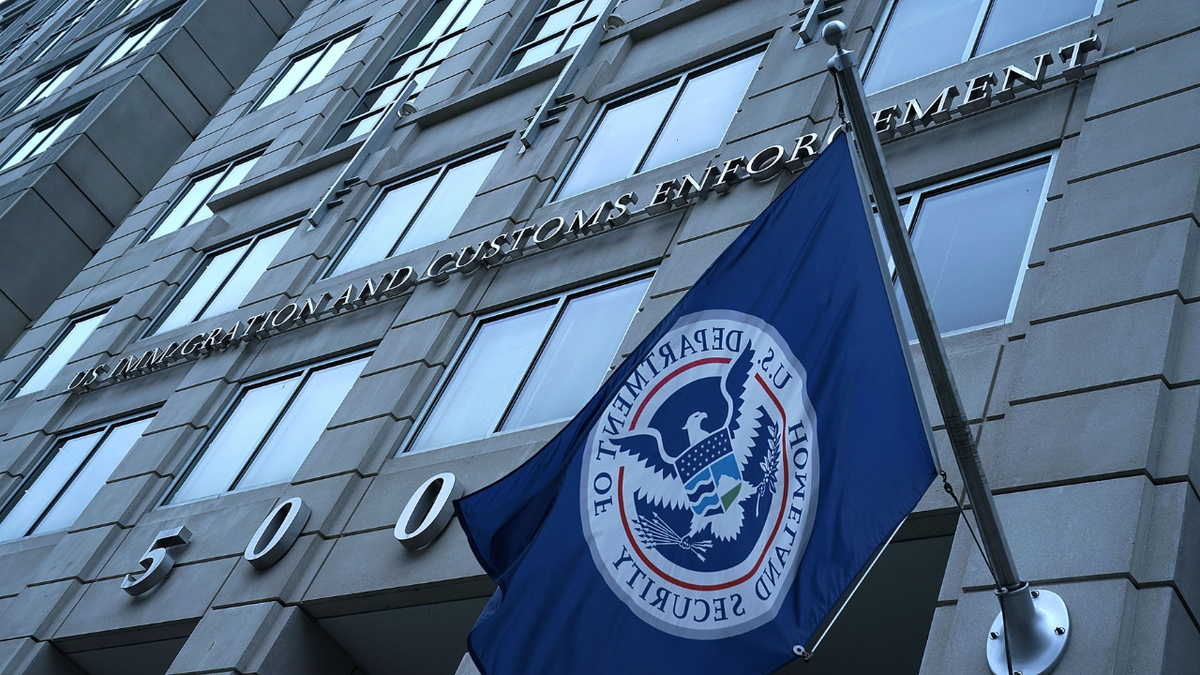Colorado deputies violated new state law when sharing information with federal immigration agents

NEWYou can now listen to Fox News articles!
Two Colorado deputies have been disciplined for sharing information with federal immigration agents, which is a violation of state law enacted a few months ago.
Colorado Attorney General Phil Weiser sued Mesa County Sheriff’s Deputy Alexander Zwinck last week after his cooperation with federal immigration agents on a drug task force was exposed during a Brazilian college student’s arrest for an expired visa, according to The Associated Press.
While addressing the incident on Thursday, Mesa County Sheriff Todd Rowell said Caroline Dias-Goncalves, a 19-year-old nursing student, was pulled over by Zwinck for a traffic stop on June 5 after she was allegedly driving too close to a semi-truck. While Dias-Goncalves was released with a warning after about 20 minutes, federal immigration agents stopped her and arrested her shortly after.
Zwinck had shared her location and a description of her vehicle in a group chat that included ICE agents, Rowell said. She was arrested by ICE and taken to a detention facility, where she was held for 15 days before being released on bond.
LOS ANGELES COUNTY PUSHES TO PROHIBIT LAW ENFORCEMENT FROM HIDING IDENTITIES WHILE ON THE JOB
An internal investigation revealed a second Mesa County deputy and task force member, Erik Olson, also shared immigration information with federal agents.
The two deputies used a Signal chat to offer information to federal agents in an effort to assist immigration enforcement, according to the sheriff’s office.
Zwinck was placed on three weeks of unpaid leave and Olson was placed on two weeks of unpaid leave, Rowell said in a statement. Both were removed from the task force.
Two supervisors were also disciplined, with one suspended without pay for two days and another receiving a letter of reprimand. A third supervisor received counseling.
“The Mesa County Sheriff’s Office should not have had any role in the chain of events leading to Miss Dias-Goncalves’ detention, and I regret that this occurred. I apologize to Miss Dias-Goncalves,” Rowell said.
Zwinck was sued under a new state law signed by Democrat Gov. Jared Polis about two weeks before Dias-Goncalves’ arrest. The measure prohibits local government employees, including law enforcement, from sharing identifying information about people with federal immigration officials.
Previously, only state agencies were barred from sharing such information.
The law is one of several passed over the years limiting the state’s involvement in immigration enforcement. It has led to a lawsuit from the Department of Justice, which alleges that the protective policies violate the U.S. Constitution or federal immigration laws.
ILLEGAL IMMIGRANT CAUGHT WORKING AS POLICE OFFICER IN MAINE WHILE ATTEMPTING TO BUY FIREARM

Zwinck and Olson allegedly told officials that they believed they were following long-standing procedures, though an internal investigation found they had both received and read two emails about previous limits on cooperation with immigration officials.
An email sent on Jan. 30, 2025, told law enforcement specifically to not contact Homeland Security Investigations or ICE if someone being arrested for a violent crime is suspected of not being a citizen.
Zwinck said at his disciplinary hearing that he was not aware of the new law nor was he interested in contributing to immigration enforcement. Olson, a longtime deputy, testified that sending information to federal agents during traffic stops was “standard practice.”
“It was routine for ICE to show up on the back end of a traffic stop to do their thing,” Olson said. “I truly thought what we were doing was condoned by our supervision and lawful.”
Rowell said drug task force members from other law enforcement agencies, including the Colorado State Patrol, also shared information with immigration agents on the Signal chat, although the state patrol denied the accusation.
The sheriff criticized Weiser for suing Zwinck before an internal investigation was finished and called on the attorney general to drop the lawsuit.

“As it stands, the lawsuit filed by the Attorney General’s Office sends a demoralizing message to law enforcement officers across Colorado — that the law may be wielded selectively and publicly for maximum political effect rather than applied fairly and consistently,” he said.
Weiser said last week that he was probing whether other officers in the group chat violated state law.
A spokesperson for Weiser said he was presented with evidence of a “blatant violation of state law” and had to act.
“The attorney general has a duty to enforce state laws and protect Coloradans, and he’ll continue to do so,” spokesperson Lawrence Pacheco said.
The Associated Press contributed to this report.
Read the full article here









